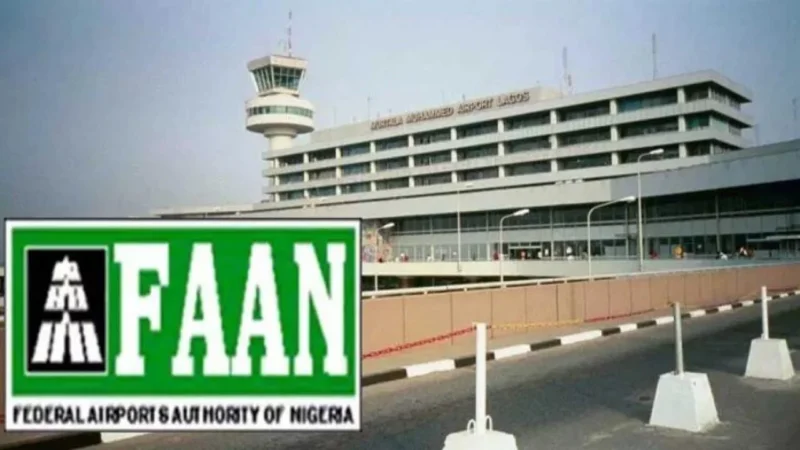FG raises Nigeria’s Cape Town Convention compliance to 75.5%
 The Federal Government has reaffirmed its commitment to the Cape Town Convention by strengthening its implementation framework and improving Nigeria’s compliance rating to 75.5 per cent.
The Federal Government has reaffirmed its commitment to the Cape Town Convention by strengthening its implementation framework and improving Nigeria’s compliance rating to 75.5 per cent.
Nigeria’s compliance rating with the Convention rose from 70.5 per cent to 75.5 per cent, reflecting significant progress under the administration of President Bola Tinubu.
Speaking at the event themed “Maximising Benefits of the Cape Town Convention, African Event”, held in Abuja, the Director of Human Resources and Administration at the NCAA, Anastasia Gbem, who represented the Honourable Minister of Aviation and Aerospace Development, Festus Keyamo, said the gathering was not just another item on the aviation calendar but “a strategic convention of minds and institutions committed to deepening Africa’s participation in and benefit from the Global Aviation Financial Framework established under the Cape Town Convention and its aircraft protocol, the promise and power of the Cape Town Convention.”
She noted that, since its inception more than two decades ago, the Convention “has transformed the landscape of aircraft financing and leasing by creating a predictable, transparent, and enforceable legal regime that reduces credit risks and enhances access to capital.”
According to her, the CTC represents “a beacon of opportunity that signals to investors and financiers that our legal system is progressively reliable. Our legal system is dependable, our markets are stable, and our governments are committed to best practices in aviation asset management and protection.”
Highlighting the growing adoption of the treaty across the continent, she stated that “today, 28 African countries have ratified the Convention, reflecting a continental recognition that the CTC is not just a legal instrument; it is a catalyst for aviation growth, economic transformation, and connectivity across Africa.”
Gbem announced Nigeria’s progress, saying, “Nigeria’s Cape Town Convention Compliance Core has risen from 70.5 per cent to 75.5 per cent following the signing and operationalisation of the irrevocable deregistration and export request authorisation procedure and practice direction. This improvement reflects our government’s unwavering commitment to implementing the Convention in both substance and practice.”
With this milestone, she said, “Nigeria strengthens its position as a regional leader in aviation law reform and financing, signalling to lessors, financiers, and investors that Nigeria is open for business on globally accepted terms.”
She, however, stressed that “no country advances in isolation”, urging African nations to harmonise their implementation strategies for greater impact. “The full potential of the Cape Town Convention can only be realised when African states collectively embrace its principles, harmonise implementation, and ensure the national legal system supports its efficient operation,” she added.
On the next steps, she said, “Our goal must extend beyond compliance to optimisation, leveraging the CTC as a tool for sustainable aviation growth. The Convention’s implementation should directly translate into lowering financial costs for African airlines, easier access to modern aircraft and equipment, improved investor confidence, and enhanced safety and operational efficiency.”
She emphasised the need for governments to ensure “consistent enforcement of obligations and stakeholders’ education”, while urging operators to “uphold transparency and responsible financial practices”.
Commending partners such as the Aviation Working Group and AFCAC, Gbem said, “The Cape Town Convention offers Africa not just an opportunity to access aircraft more affordably, but a framework to build trust, stability, and sustainability in our continent’s aviation ecosystem. Let us leave this event with a renewed commitment to deepen compliance, strengthen our institutions, and ensure that the benefits of this Convention translate into real economic growth for our nations and our people. Nigeria stands ready to continue leading, learning, and partnering in this shared vision of a connected, competitive, and progressive African aviation ecosystem.”
Also speaking, the Director of Operations, Licensing and Training at the NCAA, Donald Spiff, representing the Acting Director-General of the NCAA, Chris Najomo, noted that “a convention recognises the need for the acquisition and use of mobile equipment, thereby ensuring that interests in mobile equipment are recognised and protected universally.”
He, however, pointed out that “Nigeria has been confronted with the lingering problem of poor compliance ratings with the Convention, which led to the country being blacklisted by the African Aviation Working Group.”
Spiff recalled that under the current administration, “The Honourable Minister Festus Keyamo’s government, in line with his five-point agenda for the aviation sector under the present administration led by His Excellency President Tinubu, signed the Cape Town Convention Practice Directions on 12 September 2024.”
He described the Practice Directions as “a tool of application and guidance in the adjudication of aircraft financing and related matters by the Federal High Courts, in line with the provisions of the Cape Town Convention, a development that significantly increased Nigeria’s compliance rating to 75.5 per cent.”
According to him, “The event will challenge legal minds to grapple with the complex legal issues arising from the Convention. It shall simulate scenarios which mirror ambiguities and generate questions that a judicial system may face in the interpretation of the Convention, to be presented before Honourable Judges of the Federal High Court for determination.”
Spiff further emphasised that “it is also important to recognise that the success of the Cape Town Convention in Nigeria is tied to regional and global collaboration.”
In his remarks, the Permanent Secretary of the Ministry of Aviation and Aerospace Development, Dr Ibrahim Kana, said the Federal Government remains committed to supporting Nigeria’s aviation ecosystem and ensuring its sustainability.
“What we are doing here today is actually supporting the aviation ecosystem of our country. Indeed, we are very much aware of the struggle and effort put in by the private sector to ensure that the aviation industry remains afloat in our country,” Kana stated.
He assured that the government under President Tinubu “is determined, as he has always said, that Nigeria is ready for business. Nigeria is open for business.”
He added, “Therefore, Nigeria being a signatory to this treaty, we are more than happy to implement it to its fullest. Moreover, we have a minister who is a senior advocate of Nigeria and a lawyer of international repute. It is our responsibility to follow this treaty from beginning to end.”







